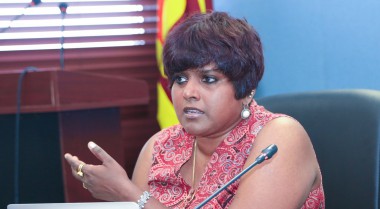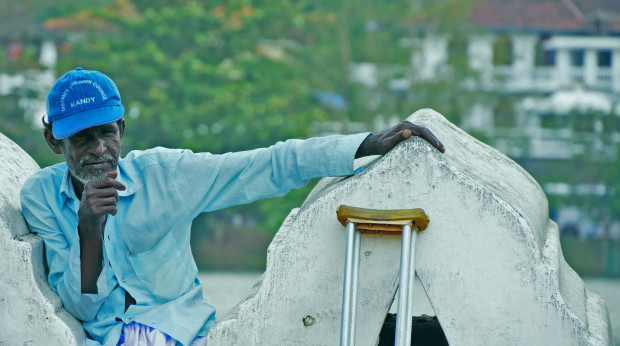
Never Forget: Remembering the Victims of Terrorism
On December 19, 2017, at the Seventy-Second Session of the United Nations General Assembly, a resolution was adopted to honor the victims of terrorism. The UN commemorated its inaugural International Day of Remembrance and Tribute to the Victims of Terrorism on August 21, 2018. Commemorating the loss of a loved one, friend, or family due to terrorism is a serious and complex issue. It raises several important questions on the act of terrorism itself as barbaric and cruel and how we should understand loss. ‘Remembering’ the victims of terrorism, how do communities understand and confront loss in order to build social cohesion are important aspects that should be at the forefront of discussion on this day.
The Complexity of Defining an Act of Terrorism
Terrorism is an act or a series of acts perpetrated by non-state actors often through violent means to achieve a political objective. For example: to create instability within a state, to create a separate state and sometimes to challenge existing forms of governance. Al-Qaida, according to studies, originated as an anti-Soviet movement. This later expanded to a global network aimed at destabilizing western governments, to create an Islamic state, and attack the US for its intervention in the Middle East.
Losing a family member, friend or a loved one is sad. The feeling of loss is more complex when such a loss occurred as a result of war, armed conflict or terrorism.
The Brookings Institution has identified how ISIS differs from Al-Qaeda in the way its members largely operate at the regional level by fighting to gain territory to establish the caliphate. In the South Asian region, defining terrorism is a perplexity due to national liberation movements and the right to self-determination. There are also complex scenarios as in the case of Sri Lanka. For example, the Easter Sunday Attacks, which was claimed by ISIS as a move to avenge the death of ISIS fighters at Baghouz in Syria, was unusual. Historically there has been no animosity between Muslims and Christians, but ISIS has targeted the minority Christians in Sri Lanka. It is difficult to explain why.
There are 19 International legal instruments to prevent terrorist attacks, but to date there is no standard definition nor a universally accepted definition of terrorism. The United Nations General Assembly Resolution 49/60, Resolution 1566 (2004), and Security Council Resolution 1373 (2001) are soft laws that are instructive to address particular issues, such as terrorism financing. Therefore, local counter-terrorism legislation is the most authoritative in terms of a definition. Even these laws have been subject to heavy criticism as a source of arbitrary detentions and violation of human rights.
The Complexity of Loss: Truth and Memory
Losing a family member, friend or a loved one is sad. The feeling of loss is more complex when such a loss occurred as a result of war, armed conflict or terrorism. The right to memory and truth-seeking is recognized in the context of transitional justice. Deborah Lipstadt, writing on holocaust denial, said that staunch nationalists and populists engage in the denial of violence. This denial marginalizes victim narratives and suppresses the need for accountability. In the post-conflict setting, learning the truth about the circumstances surrounding the death of a victim of conflict is important. This helps in building resilience to armed conflict and to confront a culture of denial. More importantly, truth and memory helps someone to question the legitimacy of war and violence.
There is always a lesson to learn from recalling past experiences in order to face the future.
Gehan Gunetilleke in his book “Confronting the Complexity of loss: Perspectives on truth, memory and justice in Sri Lanka” writes: “the idea of loss is often subjective and deeply personal”. In his study, he found that families of victims who analyze conflict as a “symptom of a grievance” are aware of the grievances of minority communities and self-identify with such grievances. With this understanding of conflict, these families recognize the importance of inter-communal understanding and basic rights to prevent future conflict.
A Special UN day to memorialize the victims of terrorism is important in the transformation of the experience of loss, not only to heal and recover but to present a united front against terrorism. The Easter Sunday Attacks in Sri Lanka demonstrated the ruthlessness of a terrorist attack. Such a cowardly act of cold-blooded murder of innocents during prayer time will not be easily forgotten. This memory should not propagate hatred, but strengthen inter-communal resilience to terrorism and all forms of violence. There is always a lesson to learn from recalling past experiences in order to face the future.
Civil society plays a crucial role in organizing events on victim remembrance, transforming narratives for combatting terrorism and, more importantly, promoting social cohesion.
Moving Forward
The suicide bombers of Easter Sunday Attacks were buried without any religious rites, as the Muslim community in Sri Lanka regarded the act as “un-Islamic”. The remembrance of the victims of terrorism should be one that doesn’t reinforce divisive narratives. The Muslim community is devastated by the attack and is working within their communities to identify and resist religious extremism. Civil society organizations are at the forefront of such discourses, working towards the prevention of terrorism and conflict. Therefore, it is important that governments do not repress civil society activism. Civil society plays a crucial role in organizing events on victim remembrance, transforming narratives for combatting terrorism and, more importantly, promoting social cohesion.



